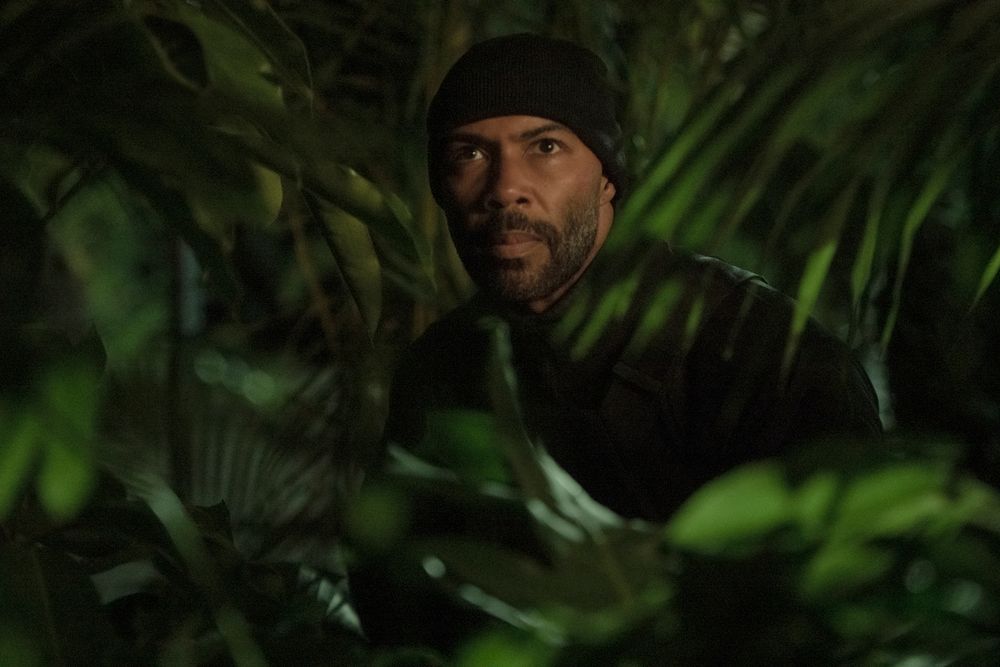There are few crime dramas that put social media in a chokehold like Starz’s Power and FX’s Snowfall. The two series—led by anti-heroes James “Ghost” St. Patrick and Franklin Saint, respectively—chronicle the gory fictional exploits of drug kingpins you can’t help but root for. These are street entrepreneurs who manifested their own destinies and made the American dream lucid. These are Black men who were given bad hands so they became dealers and rigged the game to their advantage. Their tales are as inspirational as they are cautionary.
St. Patrick (played by Omari Hardwick) and Saint (Damson Idris) lived very different lives on screen, having reigned decades apart on opposite coasts at varying life stages. The latter was a barely legal big thinker who was instrumental in the rise of Los Angeles’ crack-cocaine epidemic, building the largest illegal empire his city had ever seen. As for Ghost, he was a nightclub owner, aspiring politician, philanthropist, father and (unfaithful) husband who moonlighted as a criminal mastermind and cold-blooded killer. But Hardwick, who calls Damson Idris his “little bro,” sees similarities between their iconic characters.
“We didn’t say yes to an average guy,” the 49-year-old actor tells LEVEL of their respective castings. “We said yes to very, very dichotomous, duplicitous, complex suckas, man... Really interesting cats.”
Related: The 5 Most Inept Fictional Drug Kingpins, Ranked
Of course those ambitious, extraordinary figures attained unthinkable wealth and status for themselves and their loved ones. But their falls were velocious—undoings Hardwick attributes to a shared root cause.
“It’s always greed,” says Hardwick, who co-stars in Netflix’s The Mother alongside Jennifer Lopez (out now). “There’s always that Jesus moment where you go left or you go right. I love that James St. Patrick was breaking good from being bad—opposite Walter White [of Breaking Bad]. I love that Franklin was in the middle and younger than Ghost, and really didn’t know whether to go left or right. He was always confused, [but] differently. James seemed more clear.”
“James St. Patrick had an exit plan; Franklin didn’t have an exit plan the same way.”
The idea of making a hard pivot away from criminality was baked right into Power’s premise, with Ghost continuously grasping at legit professions that crumbled in his palms. Franklin, on the other hand, had begun buying up the many blocks his product had destroyed. His dream of becoming a real estate tycoon was stifled when he was stiffed out of his hard-earned blood money and became obsessed with recovering it.
Related: The One Heartwarming Easter Egg in Snowfall’s Twisted Finale
“James St. Patrick had an exit plan; Franklin didn’t have an exit plan the same way.” Hardwick says, adding that he considers the two protagonists among the lore of classic TV characters like the aforementioned Walter White, Tony Soprano, Stringer Bell, and Avon Barksdale. “The [question] is: Did you do the right things and enough leading up to the exit plan to be able to actually exit? Usually, the answer is no.”
He continues: “Therein lies the reason people tune in. You’re not tuning in for them to do right, because then there’s no show. You’re tuning in for them doing right for a little bit, and then, Ahhh, dammit. Right before the finish line it didn’t work.”
Related: How an Infamous Boyz n the Hood Cameo Led to Real-Life Murder
Ghost’s downfall came at the hands of his son, Tariq, who killed him before the close of the series’ sixth season. For Franklin, the other side involve neither death nor jail: The once-untouchable Saint became an alcoholic squatting in his mother’s rundown house. His relentless paper chase was a master class in counterproductivity. Yet regardless of the many evil deeds committed by both characters, the end of their arcs were harrowing. Which is a big part of why we’ll never forget them.
“Storytelling is about the tragedy and the fall of it all—the rise and the demise,” Hardwick says. “That’s what makes it so great. And so tragic.”

Comments
Leave a comment